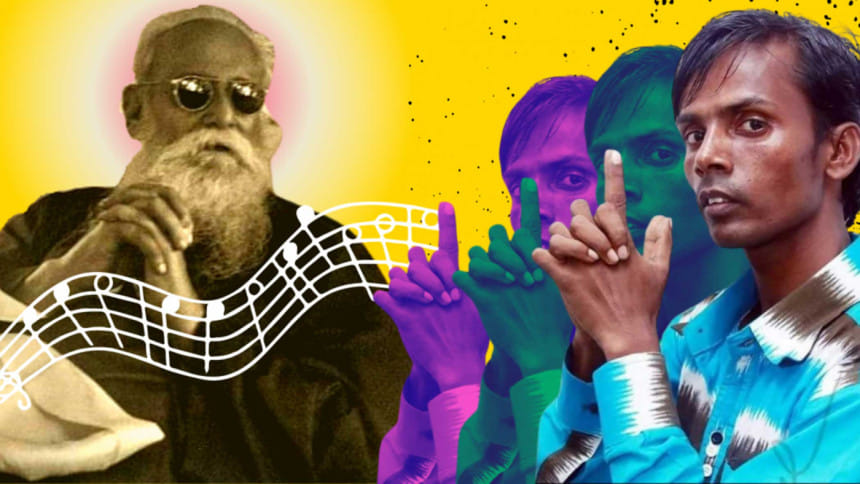Ambit of “public nuisance” and the Hero Alam incident

Ashraful Alam alias Hero Alam is a Bangladeshi freelancer music video model and actor active on social media. Some of his music videos went viral in 2015, and Alam became a popular target of online trolling and a popular subject of memes in Bangladesh.
Recently, he has been served a legal notice for misrepresenting various songs including Rabindra Sangeet in the form of music videos on social media. The notice said that Rabindranath Tagore's song is a place of emotion for many people across Bengal. Hero Alam did not care much or live up to that emotion. Rather, he directly distorted the lyrics and melody by producing music videos of different songs at different times, the notice mentioned.
It has been further alleged that the music video produced by Hero Alam contains distorted and impure Bengali words, obscene gestures, nude or semi-nude dance performances and indecent clothing which can severely affect children, teens and young people.
It said that Hero Alam had committed the 'offence of creating public outrage' by promoting and publishing 'distorted and impure Bengali pronunciation, obscene gestures and scenes' on social media in the name of making music videos. These are 'civil and criminal offences'.
It is further claimed that, Hero Alam has committed the offense of public nuisance under section 268 of the Penal Code of 1860 by promoting and publishing on social media uttering distorted and impure Bengali words, obscene gestures and scenes in the name of making music videos.
The law of nuisance was created to stop such bothersome activities or conduct when they unreasonably interfered either with the rights of other private landowners (private nuisance) or with the rights of the public (public nuisance). A public nuisance is one which inflicts damage, injury or inconvenience on all the (public) or on all members of a class who come within the sphere or neighborhood of its operation. The question whether the number of persons affected is sufficient to constitute a class is one of fact.
In Bangladesh, it is a type of criminal act which interferes with the rights of the people. It is a civil and criminal offence. A person is guilty of a public nuisance who does any act or is guilty of an illegal omission which causes any common injury, danger or annoyance to the public or to the people in general who dwell or occupy property in the vicinity, or which must necessarily cause injury, obstruction, dangers or annoyance to persons who may have occasion to use any public right. A common nuisance is not excused on the ground that it causes some convenience or advantage.
Bangladesh does not have any precise legislation of tort, although few of the tortious offences are specified in the Penal Code. In most cases, people of Bangladesh cause public nuisance as they are hardly aware of what constitutes such minor crimes as the gravity of such offences are not that serious. The government must, therefore, continue to run awareness campaign if not to completely stop public nuisance from taking place but to cut down on its frequency. But the question remains whether change of words of songs and the possible impact on the emotion constitutes a public nuisance in the eye of law.
The writer is Non-Government Adviser, Bangladesh Competition Commission.

 For all latest news, follow The Daily Star's Google News channel.
For all latest news, follow The Daily Star's Google News channel. 



Comments